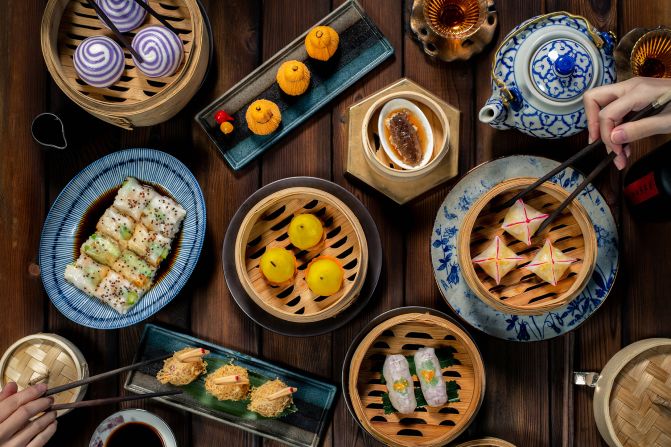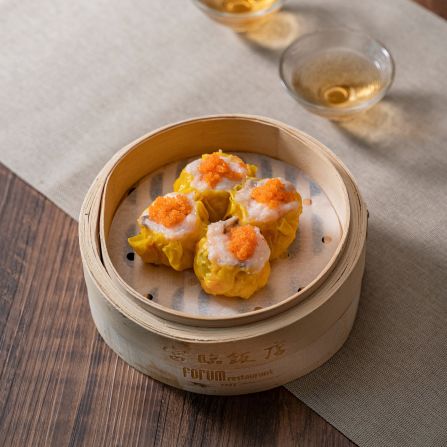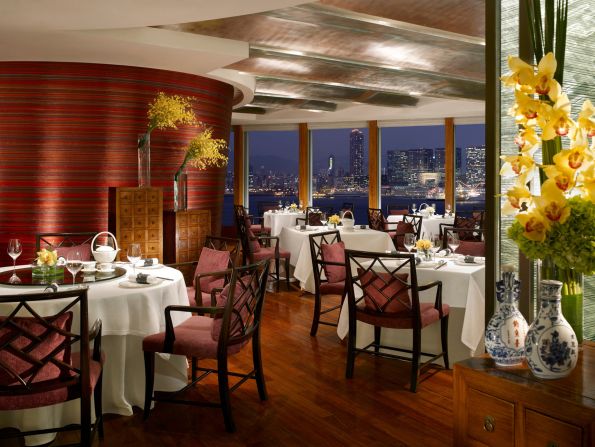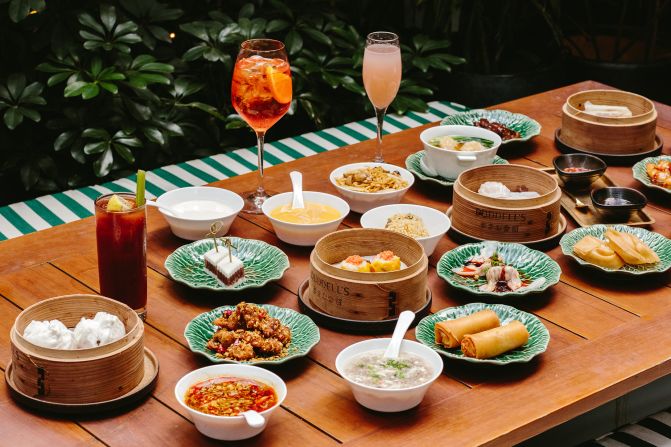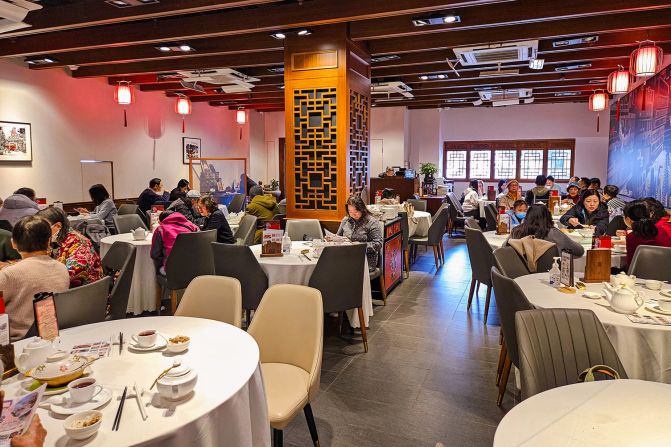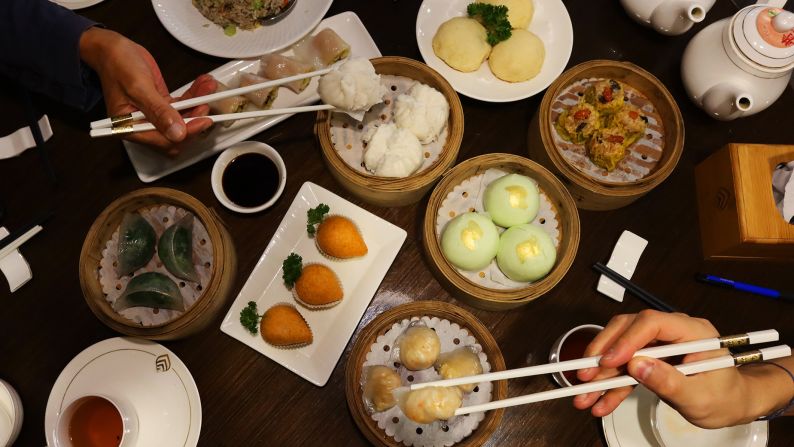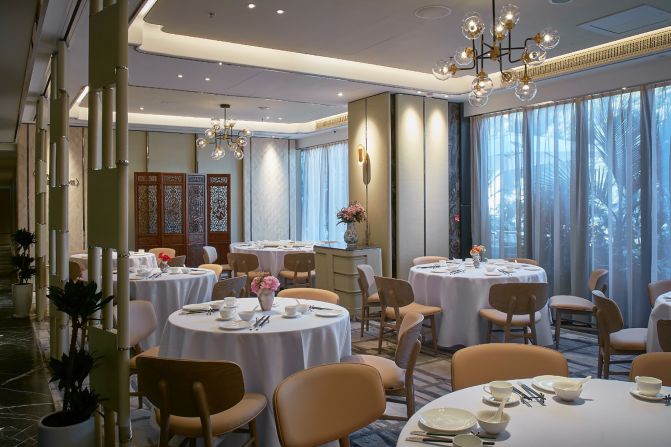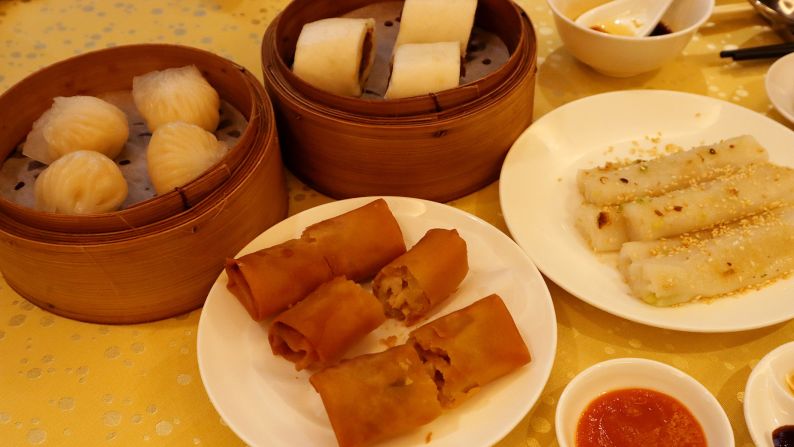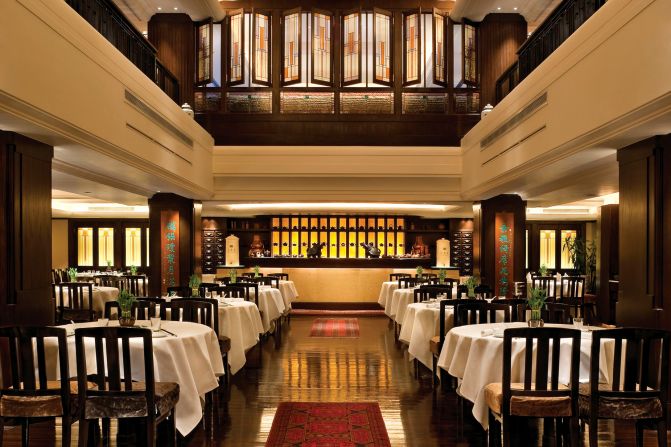Editor’s Note: This CNN Travel series is, or was, sponsored by the destination it highlights. CNN retains full editorial control over subject matter, reporting and frequency of the articles and videos within the sponsorship, in compliance with our policy.
Nothing unites Hong Kong quite like dim sum.
Baskets of steaming, bite-sized morsels bring families together every weekend, gatherings where elderly members share stories of their childhoods over the familiar taste of a Chiu Chow-style dumpling.
This is why Hong Kongers choose their dim sum experiences carefully – a quality restaurant could become the de facto family haunt that’s visited for generations to come.
After all, it’s not just the taste that makes a dim sum meal a must-have Hong Kong experience. It’s the camaraderie, too.
While it’s impossible to name all of our favorite neighborhood teahouses, here are some of the best places for chowing down on these steam-basket goodies.
Looking for advice on how to yum cha (drink tea/enjoy dim sum) like a local? Scroll to the end of this feature.
Best textbook dim sum: Forum
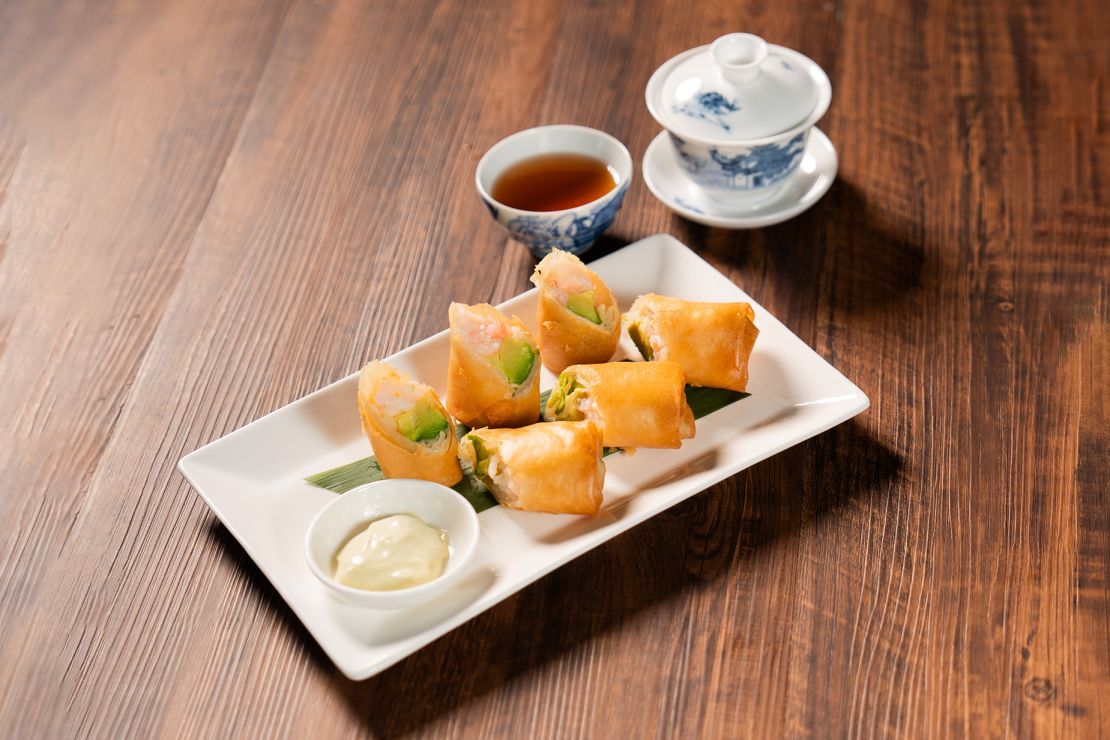
If you want to know what flawless dim sum tastes like, head to Forum.
Founded by the late Yeung Koon Yat, a legendary abalone master, this three-Michelin-star restaurant serves classic Cantonese dim sum with an attention to detail that can only be described as impeccable.
The neatly pleated hargow (steamed shrimp dumpling) wrapper is neither too firm nor too soggy.
The charsiu in the fluffy bao (steamed barbecued pork bun with oyster sauce) is never too salty nor too sweet.
Don’t leave without ordering a serving of the pillowy steamed rice roll with dried shrimp and scallion, a nostalgic local snack loved by Forum fans.
Forum Restaurant, 255-257 Gloucester Rd, Causeway Bay, Hong Kong; +852 2869 8282
Best dim sum for night owls: Sun Hing
The cozy (read: extremely packed) Sun Hing in Kennedy Town is a wondrous place where university night owls meet tipsy Lan Kwai Fong revelers meet newspaper-reading early-bird seniors.
As the chefs begin kneading dough and wrapping buns in the middle of the night, neighbors slowly fill the seats and wait for its freshly made dumplings, addictive salted egg yolk custard buns and stir-fried crispy milk puffs.
There is no menu or ordering sheet here.
Diners choose their dim sum from the display towers located at the counter.
Sun Hing Restaurant, G/F, 8 Smithfield Rd, Kennedy Town, Hong Kong; +852 2816 0616
Best pre-hike breakfast: Duen Kee
Sitting at the foothill of Tai Mo Shan, the tallest peak in Hong Kong, the two-story Duen Kee serves a rustic dim sum menu from early morning. Diners serve themselves, grabbing everything from utensils and tea to their preferred dishes.
Duen Kee may not offer the most refined dim sum – dumpling wrappings are known to be soggier than they should be – but it has some hard-to-find flavors, such as quail egg siu mai, preserved Chinese sausage rolls and blanched watercress freshly harvested from the farms next door.
Duen Kee, 57-58 Chuen Lung Estate, Route Twisk, Tsuen Wan, Hong Kong; +852 2490 5246
Best power lunch: Lung King Heen
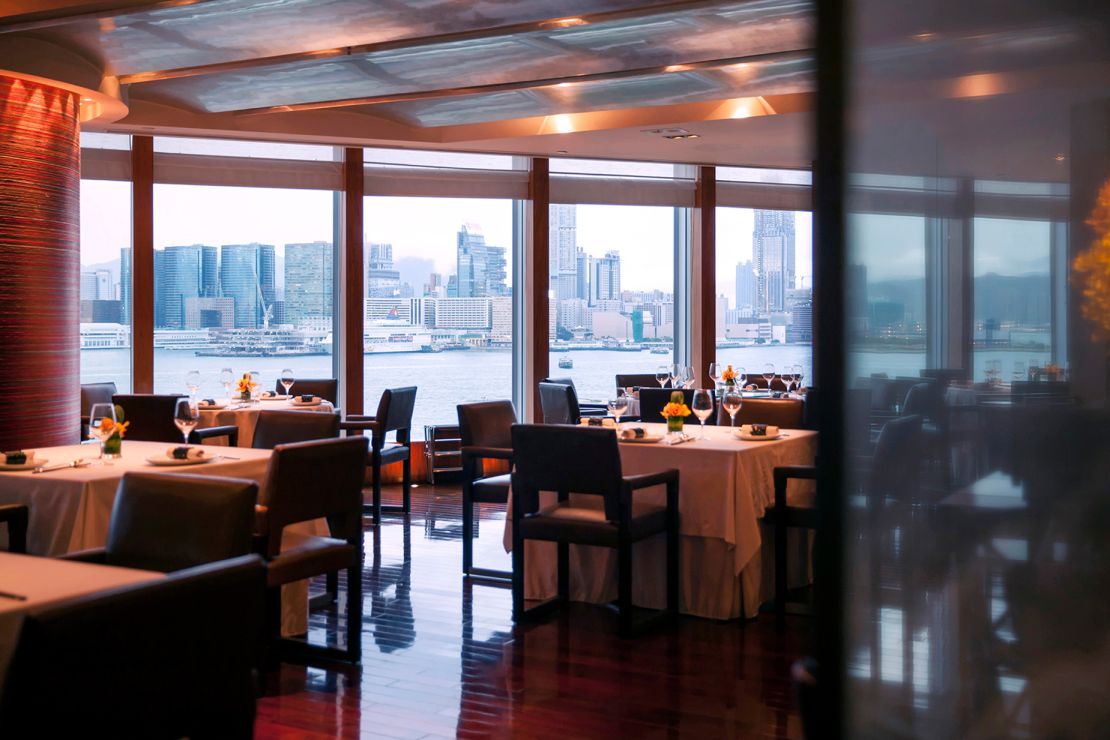
In 2023, the city let out a collective gasp when highly-respected Lung King Heen lost one of its three Michelin stars. After all, it became the world’s first three-star Chinese restaurant in 2009.
But that doesn’t mean it’s any less special. From its perfectly synchronized service and exemplary siumai (steamed pork and shrimp dumplings) to unbeatable harbor views, it’s hard to fault Lung King Heen.
Chef Chan Yan Tak, affectionately called Brother Tak, makes a daily Cantonese soup incorporating traditional Chinese medicinal knowledge that is meant to nourish the body.
Lung King Heen, Four Seasons Hong Kong, 8 Finance St, Sheung Wan, Hong Kong; +852 3196 8882
Most cinematic setting: Spring Moon
If you’re visiting Spring Moon inside The Peninsula Hotel for the first time, you’ll likely need a few moments to peel your eyes off the beautiful Art Deco interiors, especially if you’re seated at the balcony table upstairs.
Once you’re finally ready to look at the menu, Spring Moon has plenty of signatures to choose from.
Its deep-fried Japanese turnip puffs with conpoy and pan-fried glutinous rice with egg are our favorites.
The massive deluxe dumpling with fish maw and bamboo pith in supreme soup is also a must-have.
Spring Moon, 1/F, The Peninsula Hong Kong, Salisbury Rd, Tsim Sha Tsui, Hong Kong; +852 2696 6760
Best dim sum for spice lovers: Golden Valley
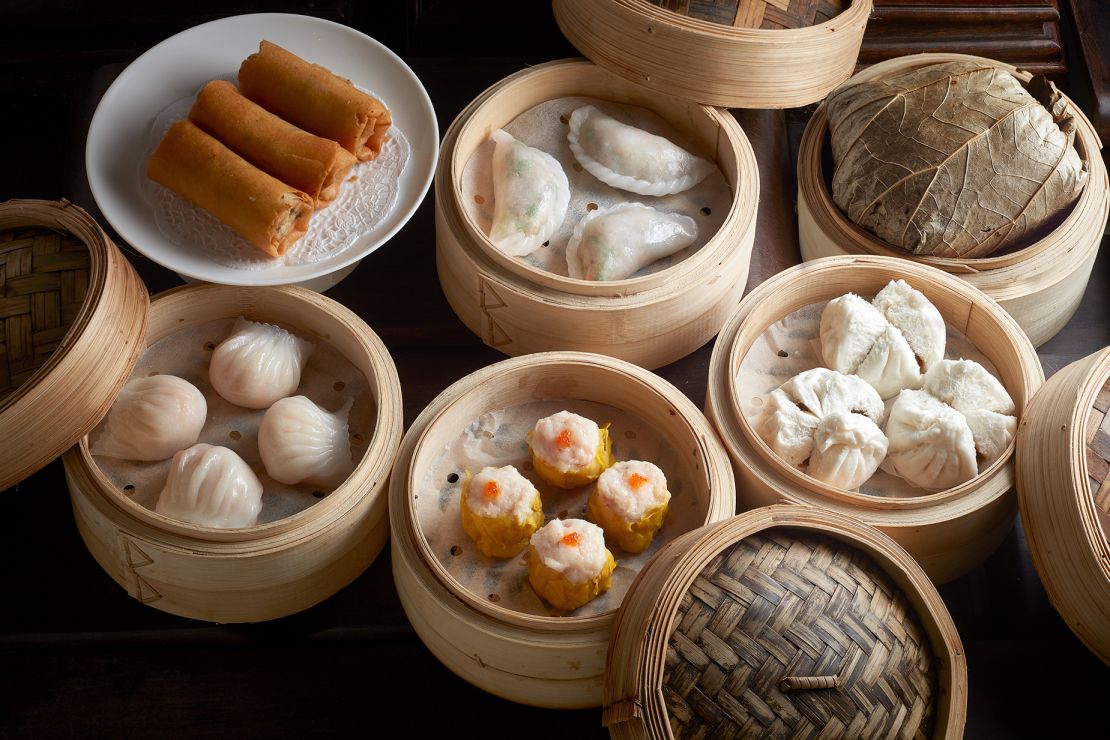
Golden Valley offers two styles of Chinese cuisine – Cantonese and Sichuanese – on one dim sum menu.
The sizable dim sum list features many well-made classics like country-style fried pancakes and steamed barbecued pork buns.
Golden Valley’s fan gwo (Chiuchow style dumplings) are a refreshing and sumptuous pocket of shrimp, mushrooms, pork and water chestnuts, while its Sichuanese dan dan noodles are flavorfully spicy.
Service is generally warm with a tinge of uptightness.
Golden Valley, The Emperor Hotel Wan Chai, 373 Queen’s Rd East, Wan Chai, Hong Kong; +852 2961 3330
Best vegetarian dim sum: Veggie Kingdom
Veggie Kingdom boasts a pretty impressive meatless dim sum experience that even non-vegetarians wouldn’t feel is lacking.
Helmed by a veteran dim sum chef, Veggie Kingdom makes fresh vegan dishes using traditional cooking techniques. Specially-treated vegetable oil is used to replace lard and butter, which are often used in dim sum. Assorted mushrooms are added to replace the richness and meatiness of the usual pork fillings.
To add to the challenge, the restaurant also rejects the “five spices” – garlic, onions, chives, shallots and leeks.
According to Buddhist philosophy, the five pungent spices arouse emotions that will prevent one from achieving calmness.
Veggie Kingdom, 7/F, V.I.P. Commercial Centre, 120 Canton Rd, Tsim Sha Tsui, Hong Kong; +852 2366 3233
Best tycoon-worthy dim sum: Seventh Son
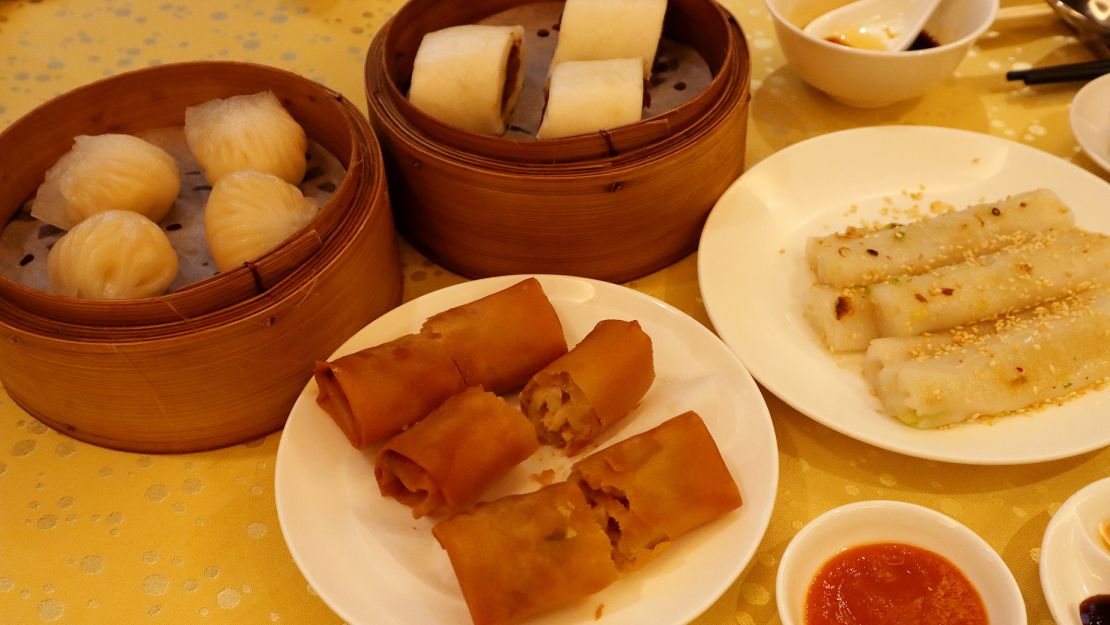
A ritualistic Cantonese dim sum journey isn’t complete without visiting Seventh Son.
Founder Chui Wai Kwan, the youngest son of the family behind the famed Fook Lam Moon group, began training under his father at the age of 14 and headed up the monolithic establishment by the time he turned 20, in the 1960s.
After molding many generations of Cantonese chefs around town and amassing a devoted following from the city’s most affluent, in 2013, 65-year-old Chui left Fook Lam Moon and founded Seventh Son.
Seventh Son’s classic a la carte menu features many hard-to-find items. You won’t regret ordering a side of the crispy roast suckling pig – the high price is worth it.
Seventh Son Restaurant, 57-73 Lockhart Rd, Wan Chai, Hong Kong; +852 2892 2888
Best neighborhood dim sum: Tai Wai Dining Room
When four friends decided there weren’t enough quality Cantonese restaurants in their neighborhood they decided to take matters into their own hands, and the Tai Wai Dining Room was born.
With experienced dim sum chefs creating carefully curated traditional dishes, it wasn’t long before the restaurant became one of the most sought-after venues in the area.
Top dishes include the oversized Canton style egg puff – it takes an hour to deep-fry so is in limited supply.
Their ever-popular servings of char siu, made with a special toasted pineapple sauce, are far chunkier than those offered elsewhere.
In addition to the original Tai Wai Dining Room, there’s a new branch that recently opened in Yuen Long.
Tai Wai Dining Room, Chik Fuk St, Tai Wai, Hong Kong; +852 2339 0189
Best Champagne dim sum: Duddell’s
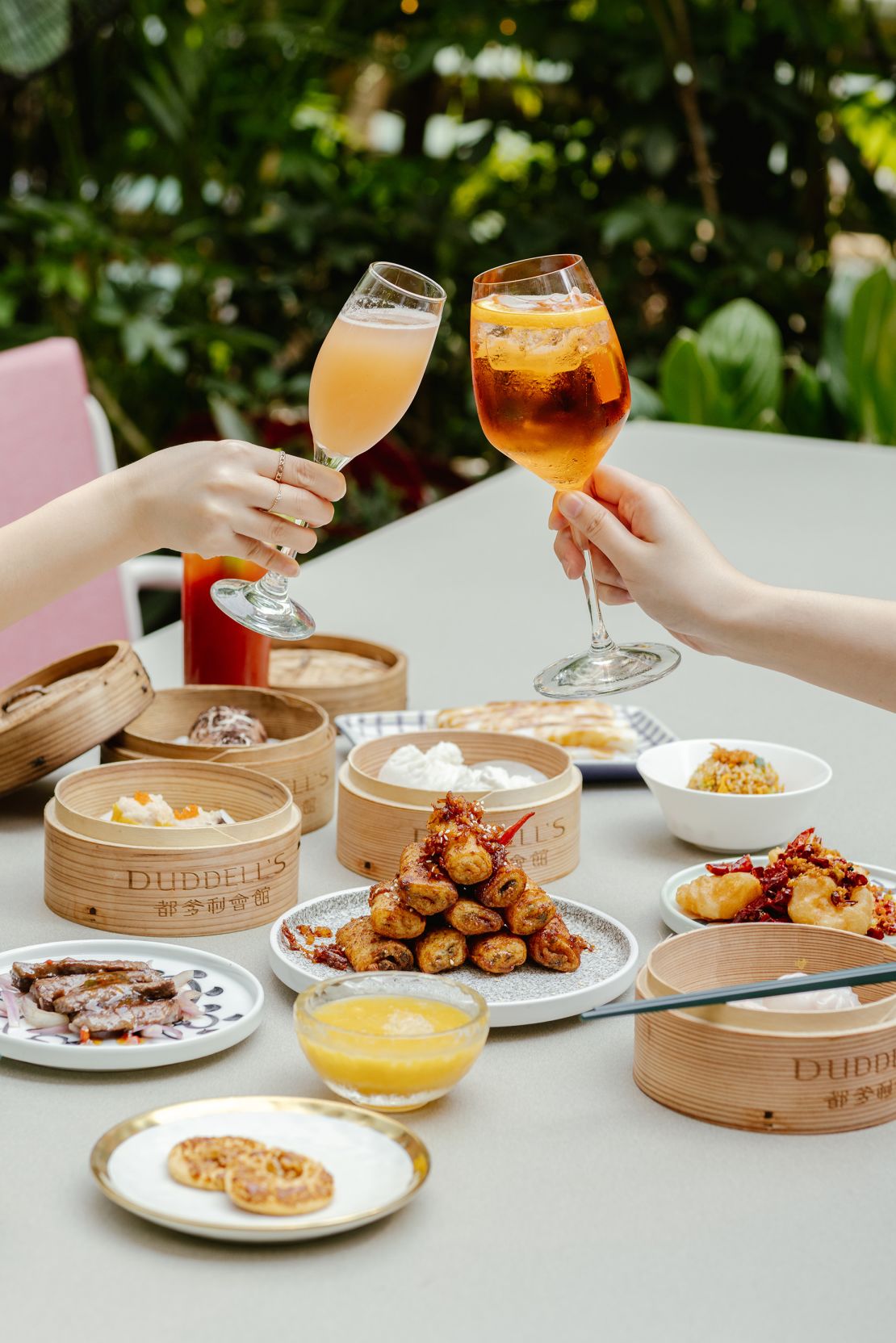
Every weekend, the city’s artists and foodies gather at the lush terrace outside two-story Duddell’s to share free-flow Champagne, all-you-can-eat dim sum and the latest gossip in town.
Since opening in 2013, this art-focused restaurant has been a leading force in making Cantonese cuisine chic without compromising on traditional flavors.
The restaurant is currently headed by veteran chef Chan Yau Leung, who has gathered awards and recognition in his previous stints at Fook Lam Moon and Guo Fu Lou.
Duddell’s, 3/F, 1 Duddell St, Central, Hong Kong; +852 2525 9191
Best old-school trolley dim sum: Luk On Kui
If you aren’t afraid of a little chaos and a yit naau (hot and loud) experience, head to Luk On Kui.
Formerly Lin Heung Kui, the restaurant was renamed and reopened as Luk On Kui in 2024 – named after the pitch-black dark tea they serve in the restaurant.
It’s one of the few places that still uses dim sum pushcarts. Once the most common way to serve dim sum, trolley “aunties” would parade around the restaurant with different types of freshly made dim sum.
If you’re lost, the diners sharing your table are usually happy to assist.
Luk On Kui, 2-3/F, 40-50 Des Voeux Rd West, Sheung Wan, Hong Kong; +852 2156 9328
Best dim sum set: Legacy House
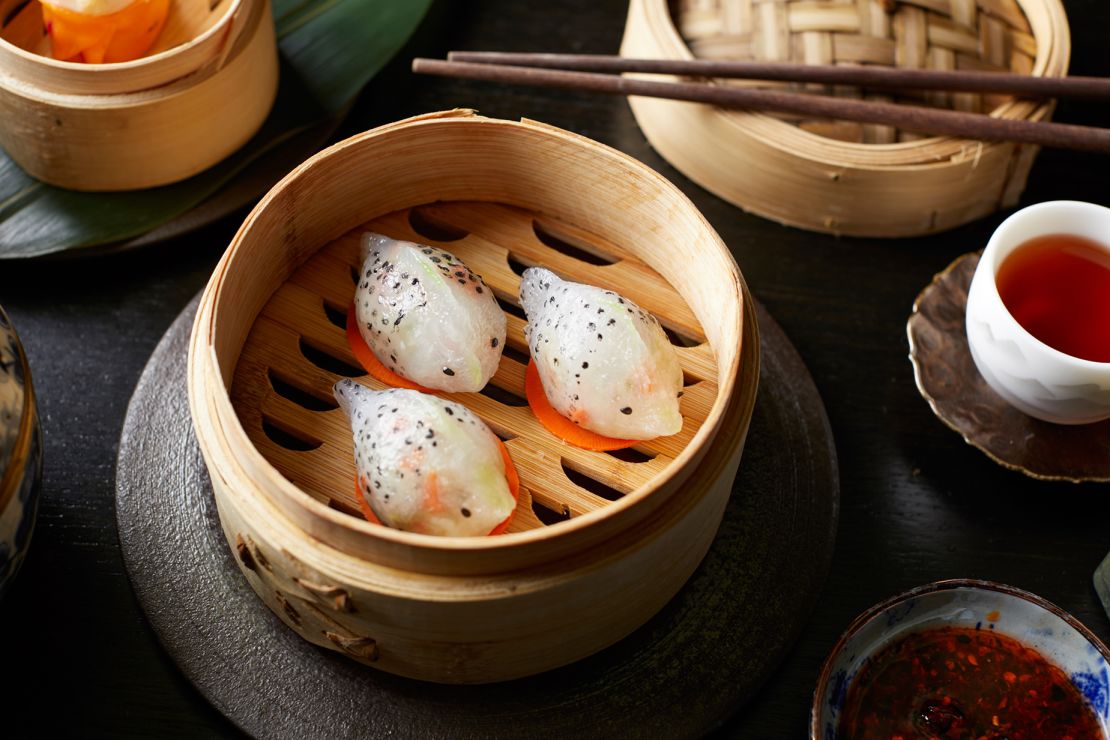
Paying homage to the patriarch of Rosewood Hotel Group’s parent company, the Legacy House spares no cost in bringing in a variety of Shunde and Cantonese dim sum that’s been made with top ingredients.
Its well-curated dim sum set includes patron favorites such as the steamed spotted garoupa dumpling with salted lemon. Meanwhile, its simple sugar pudding is perfectly made in-house with a moist and spongey texture and the right hint of sourness.
Chef Li Chi Wai is a master of aged tangerine peel dishes. Trust us and order a side of aged tangerine peel fish dumplings as well as the braised fish maw soup with lamb head, lamb hoof and 50-year-old dried tangerine peels.
Legacy House, 5/F Rosewood Hong Kong, Victoria Dockside, 18 Salisbury Rd, Tsim Sha Tsui, Hong Kong; +852 3891 8732
Dim sum tips
As highlighted above, there are so many kinds of dim sum experiences, from five-star hotel services to no-frills cafeterias.
For travelers, first-time dim sum sessions can be intimidating – especially in the later setting where servers don’t necessarily speak English and it’s often loud and chaotic.
Here are a few tips to help you make the most of your first dim sum experience, along with a video featuring excellent advice from Mak Kwai Pui.
The famed local chef is the founder of Tim Ho Wan – a good value dim sum restaurant that has swollen into a beloved international chain.
1. Get squeaky clean
Unless you’re in a higher-end teahouse, the beginning of the dim sum session is a time to embrace your inner clean freak.
Once seated, diners roll up their sleeves and start rinsing utensils at the table.
First, pour some hot tea (it’s the best grease remover) into the big bowl provided, dip your cup into it sideways and spin it.
Then, scoop some tea with your washed cup and pour it over the chopsticks.
Empty all the tea into the larger collecting bowl.
2. How to order
There are three main types of dim sum restaurants.
At the traditional ones, dim sum is rolled around on carts or set on a counter. Diners just have to watch for the right cart and grab their desired dim sum.
However, nowadays most teahouses provide dim sum ordering forms.
Check off the types of dim sum and write in the number of baskets you want.
Circle your orders to make sure they don’t get lost in the long list of choices.
Then hoist it in the air to show you’re ready.
In more upscale restaurants, diners order off regular menus.
3. Share your dim sum
What should you do when there are just three pieces of lau sa bao between the six of you?
Apart from ordering another basket of dim sum, a Cantonese person will tell you sharing is the right way to go – it allows you to save stomach space to sample more dishes.
Tear a bun with your fingers – forget about the cleanliness we just mentioned.
You can split smaller dim sum pieces by crossing your chopsticks through them.
4. Tap two fingers for “thank you”
In most high-end teahouses, waiters will refill your teacup with hot tea before it’s empty.
In other situations, the youngest person at the table is often entrusted with the task.
You don’t lift a hot teapot without pouring tea for others as well – and always pour for others first.
When being served, you just have to tap your index finger and your middle finger in front of your cup to show gratitude.
5. Empty pot?
By lifting the lid of a teapot and hanging it on the handle, or simply on the table, you send a signal that you need a hot water refill.
6. “Maai daan!”
To get the bill, raise your hand with your index finger pointing downward, then twirl it like you’re drawing a circle in the air.
Or simply shout “maai daan” (in Cantonese it literally means “closing the bill”).
Most importantly, don’t be shy and say “Mm goi” (thanks) whenever you can.

